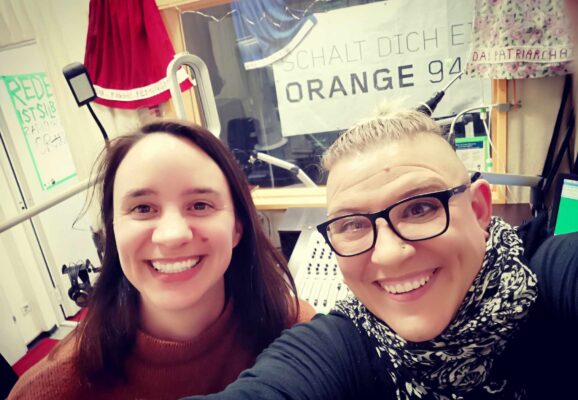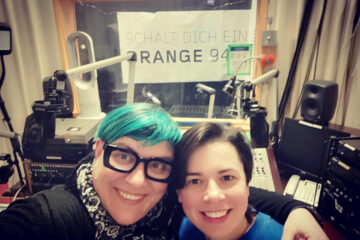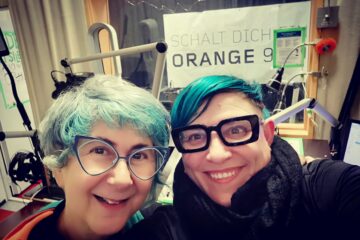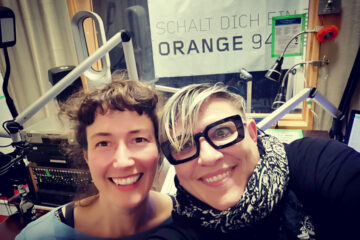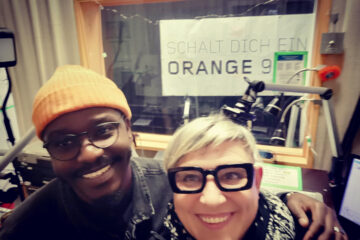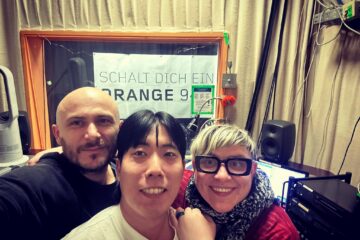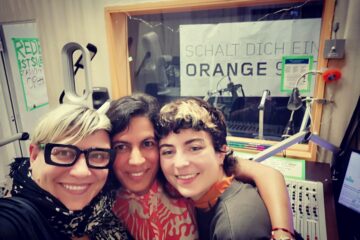Where are the female partisans today? How is the anti-war struggle recorded, and why is it important to open up all these issues through artistic formats. What is important is that in Vienna we have MUSMIG – Museum of Migration in Austria, because a huge archive is stored there, for a better understanding of the past and the present.
Great guest: Elena Messner, writer, cultural scientist, and a member of the MUSMIG – Museum of Migration in Austria.
Listen carefully:
Opening of the MUSMIG space at the Otto Wagner area: The Museum of Migration becomes manifest …and bursting at the seams! On 29.3.2025, 7 p.m., opening of the MUSMIG room in pavilion 1 of the Otto Wagner area in the Volkskundemuseum Wien. https://musmig.co/
Elena Messner, writer and cultural scientist, is currently a FWF Senior Post-Doc researcher (Elise Richter Programme) at the Department of Slavic Studies, University of Vienna, with a project on translations in feminist periodicals from Ex-Yugoslavia. She studied Comparative Literature and Cultural Studies in Vienna and Aix-en-Provence. Her PhD thesis was on the post-Yugoslav war literature and its reception in the German-speaking cultures. From 2013-2018 she was teaching German and Austrian studies at the University in Aix-en-Provence and Marseille. She has also been teaching at the Department of Slavic Studies, University of Klagenfurt since 2014. She also writes novels and theaters pieces. She was and is a curator and activist in the cultural projects like #hgmneudenken, MUSMIG-museum of migration, WerkStattMuseum/delavnicaMuzej. She is currently curating an exhibition on women and partisan art that travels from Hamburg, Leipzig, Berlin and Klagenfurt/Celovec to Munich and Vienna. Latest publication: Schmerzambulanz (novel, 2022, adaptation for theater 2025, UA: Vorarlberger Landestheater, R: Viola Köster). www.elena-messner.com




